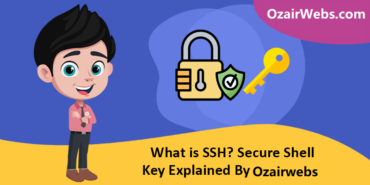WordPress eCommerce Hosting
Online shopping is becoming more popular by the minute. The convenience and ease of use of online shopping on the web appeal to both sellers and consumers alike. Best WordPress eCommerce Hosting is nothing but the process involving buying and selling products or services online. Electronic funds transfer, supply chain management, internet marketing, and mobile commerce are all important facets of eCommerce.
Some more important features of eCommerce or electronic commerce businesses can be put down as follows:
- Participation in online marketplaces.
- Gathering of demographic data through social media.
- Electronic data exchange using business-to-business(B2B) transactions.
- Online marketing.
- Online currency exchange.
- Online shopping websites.
Top Rated eCommerce Website Builders
These are some of the high rated companies in eCommerce hosting according to expert reviewers
Shopify
Just as the brand name suggests, Shopify is the perfect eCommerce platform that provides its customers with all the above-mentioned features. Shopify provides a huge number of design templates, payment options along with drag and drop website builders.
The cost of a hosting package from Shopify is rather high but it usually reflects the good quality service that is provided. A 14-day trial option is also available for the advantage of beginners and first time business owners.
Wix
Wix provides its customers with web design themes suited to an eCommerce business and code-free customization at a very affordable price. The performance and security available with this provider is not known for its robustness but, it is ideal for startup owners to get their feet wet in the eCommerce world.
Top Rated eCommerce Hosting Providers
Here’s a brief overview of the top 10 eCommerce hosting providers globally, covering their services, official websites, company history, server locations, and pricing plans:
- Shopify
- Services: Fully hosted eCommerce platform, includes website builder, shopping cart, payment processing, and inventory management.
- Official Website: Shopify
- Company History: Founded in 2006 in Canada.
- Server Locations: Distributed globally, with primary data centers in North America.
- Pricing: Plans start at $29/month.
- BigCommerce
- Services: SaaS eCommerce platform offering customizable templates, payment gateways, and SEO features.
- Official Website: BigCommerce
- Company History: Established in 2009 in Australia.
- Server Locations: Mainly in the USA.
- Pricing: Basic plans begin at $29.95/month.
- WooCommerce (hosted on WordPress.com)
- Services: Open-source eCommerce plugin for WordPress, offering extensive customization and integration options.
- Official Website: WooCommerce
- Company History: Launched in 2011, acquired by Automattic in 2015.
- Server Locations: Global, through WordPress.com’s infrastructure.
- Pricing: Free plugin , but hosting on WordPress.com starts at $25/month for eCommerce plans.
- Magento (Adobe Commerce)
- Services: Open-source platform with powerful customization, large community, and extensive features for enterprise.
- Official Website: Magento
- Company History: Founded in 2008, acquired by Adobe in 2018.
- Server Locations: Global, through third-party hosting providers.
- Pricing: Community edition is free; Enterprise pricing is quote-based.
- Wix eCommerce
- Services: Drag-and-drop website builder with eCommerce capabilities, templates, and apps.
- Official Website: Wix eCommerce
- Company History: Founded in 2006 in Israel.
- Server Locations: Data centers in the US and Europe.
- Pricing: Starts at $23/month for Business Basic plan.
- Squarespace Commerce
- Services: All-in-one solution with website builder, eCommerce features, and integrated marketing tools.
- Official Website: Squarespace
- Company History: Founded in 2003 in the USA.
- Server Locations: US-based.
- Pricing: Commerce plans start at $26/month.
- Volusion
- Services: eCommerce platform with website builder, marketing tools, and payment processing.
- Official Website: Volusion
- Company History: Founded in 1999 in the USA.
- Server Locations: Primarily in the USA.
- Pricing: Starting at $29/month for the Personal plan.
- 3dcart (now Shift4Shop)
- Services: Comprehensive eCommerce platform with a wide range of built-in features and tools.
- Official Website: Shift4Shop
- Company History: 3dcart founded in 1997, rebranded to Shift4Shop in 2020.
- Server Locations: United States.
- Pricing: Free plan available for US merchants; other plans start at $29/month.
- Kinsta (for hosting WooCommerce)
- Services: Managed WordPress hosting provider specializing in WooCommerce, with high-performance and secure infrastructure.
- Official Website: Kinsta
- Company History: Founded in 2013.
- Server Locations: 24 global data center locations.
- Pricing: Plans start at $30/month.
- SiteGround
- Services: Web hosting provider known for its WordPress and WooCommerce hosting solutions, with managed services and support.
- Official Website: SiteGround
- Company History: Founded in 2004 in Bulgaria.
- Server Locations: Data centers across four continents.
- Pricing: StartUp plan begins at $14.99/month, with special discounts for the first term.
FAQ
What is e-Commerce?
E-Commerce is the selling of things online. It can be goods that you manufacture yourself or that someone else manufactured but you are the retailer. The latter is sometimes achieved through being a sales representative with or without multi-level marketing or by using a drop shipper.
What are the advantages of e-Commerce vs other ways of marketing goods?
Some of the advantages of e-commerce are: you don’t have the expenses of maintaining a “brick and mortar” store. You don’t need sales people. You can attract able-bodied as well as those with mobility issues and other disabilities. The customer only needs a computer or their smartphone and a credit card (this can sometimes be a disadvantage as some people do not have computers and/or credit cards.)
What is a “brick and mortar” store?
A brick and mortar store is one with a physical presence. Customers are served by flesh and blood sales people. Customers are able to view, feel, and sometimes try out or try on the products they are considering buying.
How can I start an e-Commerce business?
Every e-Commerce business starts with a good website design. It should include pictures and descriptions of every product you are selling. It should have a shopping cart and must have a way for customers to pay for the products they choose. It also should have an “About” page describing your company with ways customers can contact you if they need help. It’s also helpful to have a Frequently Asked Questions (FAQ) page.
What is a shopping cart?
In real life, a shopping cart is a way to carry what you are buying to the cashier where you will pay for your things. You have the ability, while you are shopping, to add or remove items from the cart at any time before paying for the contents of the cart.
E-Commerce shopping carts work the same way. When you find items, you want to buy, you can add them to the shopping cart which holds them for you until you are ready to check out. The shopping cart should have a prominently displayed “Checkout” button. This button takes the customer to another page to enter their address and billing information.
The shopping cart will figure the total amount due including any shipping and/or handling costs and any taxes to be collected. There is usually a choice to pay with debit or credit card or by e-check. Depending on the shopping cart software, there might also be a choice to pay with PayPal.
What things do I need to have for my shopping cart to work?
First, you need to have a business account with a bank. Then you need to have a merchant account which will allow you to process credit card purchases. To apply for a merchant account, you need your Social Security Number, your Driver’s License Number, and your contact information. If there are other principals in the company, you will need their information also.
To process orders online while the customer waits, you need a third-party gateway which is an outside company that links your shopping cart to your merchant account. There are many third-party gateways to choose from. PayPal is one such gateway. You also need an SSL certificate for your website. This tells the customer that the transactions are going over a secure connection.
What is an SSL Certificate and where do I get one?
SSL stands for Secure Socket(s) Layer. Its primary purpose is to let the user know that they are connected to the right website and not a forgery. It also ensures that any information that is transmitted is encoded and not sent in plain text. You can buy SSL Certificates on the web. Please make sure that you are getting a dedicated IP address and that it is issued to your domain only and not a sub-domain of someone else. Otherwise, it loses its primary purpose of authenticating the identity of your website.
What is PayPal?
PayPal is an online payment service that allows individuals and businesses to transfer money electronically. It doesn’t cost anything to make an account or to send money. When they make a PayPal account, customers input what debit/credit card or bank account they want the money to be withdrawn from. No banking information gets sent to the on-line store.
What is the best way to create a website?
Unless you are a professional website designer, don’t do it yourself. One way is to hire a professional. But, if you go this route you will also have to find a hosting service to host the site.
Another way is to use a full-service on-line company that provides templates for you to choose from for web design complete with apps for adding pictures, adding a shopping cart, and collecting payments. They will also host the website.
Do I need to have a huge inventory?
Not necessarily. You can sell other people’s goods either as a sales rep or use a wholesaler who provides drop-ship services. Being a sales rep sometimes, but not always, involves multi-level marketing.
What is multi-level marketing?
Usually, a sales rep’s commission is based solely on sales the rep has generated. In multi-level marketing (MLM) reps make commission not only on the sales they generate but also on sales their customers generate by selling to others.
Is multi-level marketing the same as a pyramid scheme?
The best way to answer this might be to say that all pyramid schemes involve multi-level marketing (MLM) but not all multi-level marketing is a pyramid scheme. There are many legitimate MLM opportunities on the web.
What is a drop shipper?
A drop shipper is a wholesaler who provides drop ship services (warehousing and shipping) to a retailer. The retailer takes the order and collects the retail price for the item. The retailer then pays the wholesaler the wholesale price of the item. The wholesaler ships the item to the customer.
Where do I get the pictures and descriptions for my website?
If you are selling your own merchandise that you created, you will be responsible for taking the pictures and writing the descriptions. You can also hire a photographer and a writer to do this. If you are a sales representative or using a drop shipper, they will provide you with the pictures and descriptions to add to your website.





